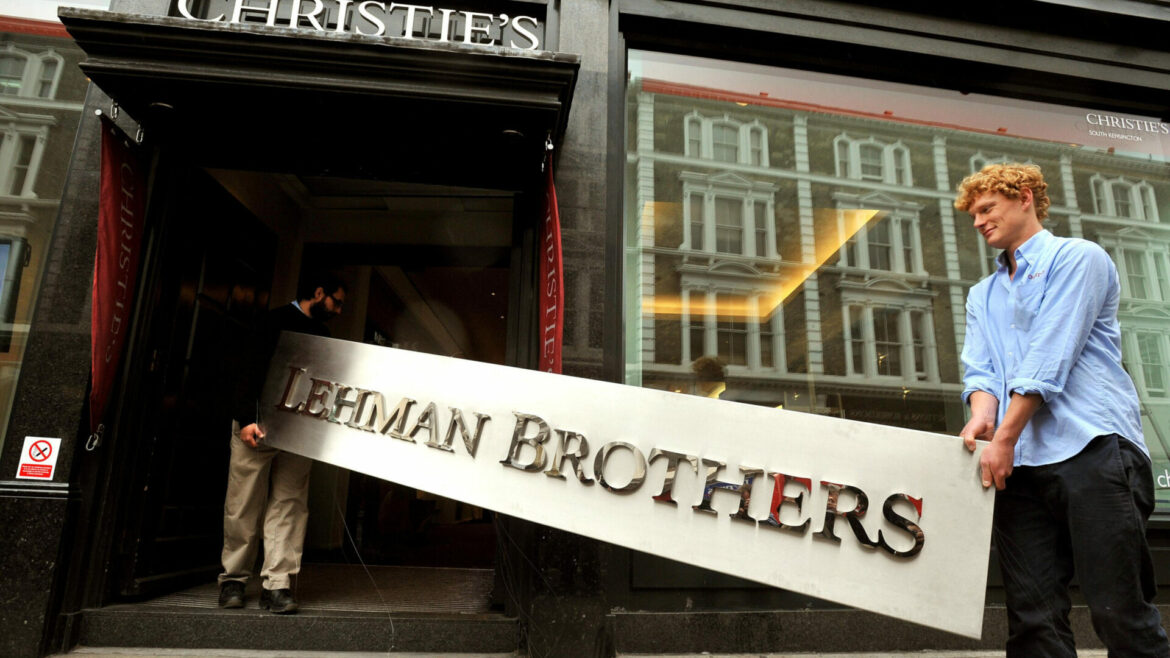The local Shakespeare Theater’s run of the story of the Lehman Brothers family in America incorporates multiple themes that are all very much present in America today. I believe they can inform the credit union story.
The play is an adaptation of a novel about the Lehman family. Three actors portray 55 different characters in the 163 years of the family’s timeline. Although the firm’s $600 billion bankruptcy was the central drama of the 2008 financial crisis, the family had long been absent from any leadership roles when this occurred.
An immigrant story
The play is the story of a German Jewish family settling in Montgomery Alabama in 1844. After first opening a dry goods store, they expand to become “middlemen” in the cotton trade between southern plantation growers and Northern textile mills.
They eventually opened a New York office to enhance their trading activity and expand to other commodities post-Civil War. These trades include wheat, coal, and iron ore, that is the raw materials at the center of America’s industrial revolution.
As their trading activities expand they become a “bank” and underwrite the new industries being founded from railroads to computers and entertainment after WW II. Eventually, these material commodities are supplanted by stock trading which brings the firm close to collapse in 1929. Outside owners will now control a majority of the firm.
Post WW II trading activity dominates its traditional investments in other industries. These traders buy out the firm’s presiding CEO, Pete Peterson, putting their priority on a strategy that eventually leads to the 2008 failure.
The story of growing economic wealth is interwoven with the family’s old-world religious and family values. Jewish celebrations are initially central to life but gradually become less so as succeeding generations assimilate into American culture. Their religious observance is “reformed.”
A three-part saga
Part family history, part portrayal of evolving moral values, and part the story of how finance becomes central to American enterprise give the play multiple layers of meaning. As I watched this century-and-a-half saga, many parallels with the present-day credit union story come to mind.
Credit unions have largely moved away from their focus on a local group or community to become a diversified mixture of legacy founders and new market expansions. The values and passion so critical for success in the early years have been replaced by professional managers brought in for their expertise.
Growth becomes central to reporting success. Corporate wealth creation versus member well-being is celebrated. Instead of open governance, oversight is increasingly concentrated in a few hands where leaders perpetuate their tenures. Rather than paying their success forward to future generations, incumbents explore options to cash out when their term in leadership is ending by turning control over to other firms.
The past is gone
The Lehman family gradually lost control of their “bank” when market circumstances required new capital. Evolving financial trends for their trading skills also changed the firm’s purpose.
Middleman roles gradually evolved from buying and selling actual commodities to underwriting new businesses and then merely trading pieces of paper, i.e. stocks. Ultimately finance became just digital transactions.
In this new world, everything becomes a number. And everything has a price. Finance becomes just a way to make money, versus investing in tomorrow’s economy.
Buying and selling (acquisitions) become critical skills. Member/customer trust is eroded because consumers no longer believe you will be there for them. Money management becomes the epicenter of success. All ties to previous values and economic roles are ended.
That in short is the story of the Lehman Brothers creation. Is it an object lesson for credit unions?


























































